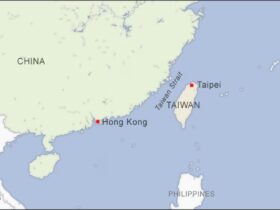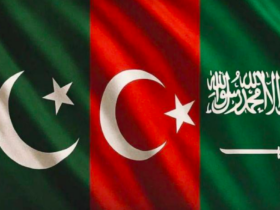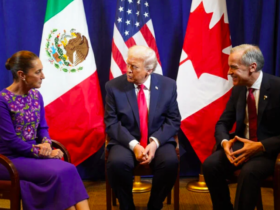A significant shift in regional power dynamics.
A significant shift in regional power dynamics.
By Erkin Feyyaz Eşli
Since the outset of 2025, bilateral relations between the Republic of Türkiye and the Republic of Chad have witnessed a notable intensification, particularly in the domain of military cooperation. This development has unfolded against the backdrop of Chad’s termination of the long-standing N’Djamena military agreement with France, which consequently led to the withdrawal of French forces from three strategically located military bases in N’Djamena, Faya-Largeau, and Abéché.
The subsequent transfer of these military installations to Türkiye’s control—reportedly for the deployment of Turkish military personnel and the stationing of defense equipment—has generated widespread analysis and speculation regarding Türkiye’s role in reshaping the security architecture of the Sahel region. Prominent Turkish journalist and former editor-in-chief of Yeni Şafak, İbrahim Karagül, has alluded to Türkiye’s expanding influence in Chad through social media posts referencing visual material purportedly taken from the aforementioned military bases. These observations have further fueled discourse on Ankara’s potential involvement in the geopolitical reconfiguration following France’s retreat from its former sphere of military engagement in Chad.
The strategic value of these bases is underscored by their geographical distribution, which affords N’Djamena using The Turkish Armed Forces potential oversight over all the segments of Chad’s borders. Of particular significance is the Chadian-Sudanese frontier, a zone of increasing strategic relevance due to persistent political instability and armed conflict within the Republic of Sudan, as well as intermittent bilateral tensions between N’Djamena and Khartoum.
At the diplomatic level, the deepening of Turkish-Chadian relations has been marked by a series of formal engagements. The last of those occurred on May 13, 2025, when Adoum Dangai Nokour Guet, the Chadian Ambassador to Türkiye, hosted a high-level delegation of Turkish parliamentarians led by Deputy Adem Çalkın, Chairman of the Türkiye-Chad Interparliamentary Friendship Group. During the discussions, the Turkish delegation commended Chad’s progress in managing its transitional period and praised efforts to establish new state institutions.
Moreover, plans were announced for a forthcoming parliamentary visit to Chad by Turkish legislators. This visit, aimed at facilitating interparliamentary dialogue with members of the Chad-Türkiye Friendship Group, is expected to reinforce ties between the two nations.
The growing depth of Turkish-Chadian cooperation has not gone unnoticed by external observers. According to Haber7, French media outlets have expressed concern over Türkiye’s expanding military presence on the African continent: “Türkiye is becoming an increasingly privileged partner of African armies. While filling the gaps in the region, Türkiye has started to pursue great claims in Africa, it has proven itself to many countries.”
In conclusion, the evolving security partnership between Türkiye and Chad represents a significant shift in regional power dynamics, with implications not only for Franco-African relations but also for the broader strategic calculus of African security governance. The consolidation of Turkish military presence and political influence in Chad is emblematic of Ankara’s broader Africa policy, which seeks to position Türkiye as a central actor in the continent’s evolving security and development landscape.

















Leave a Reply